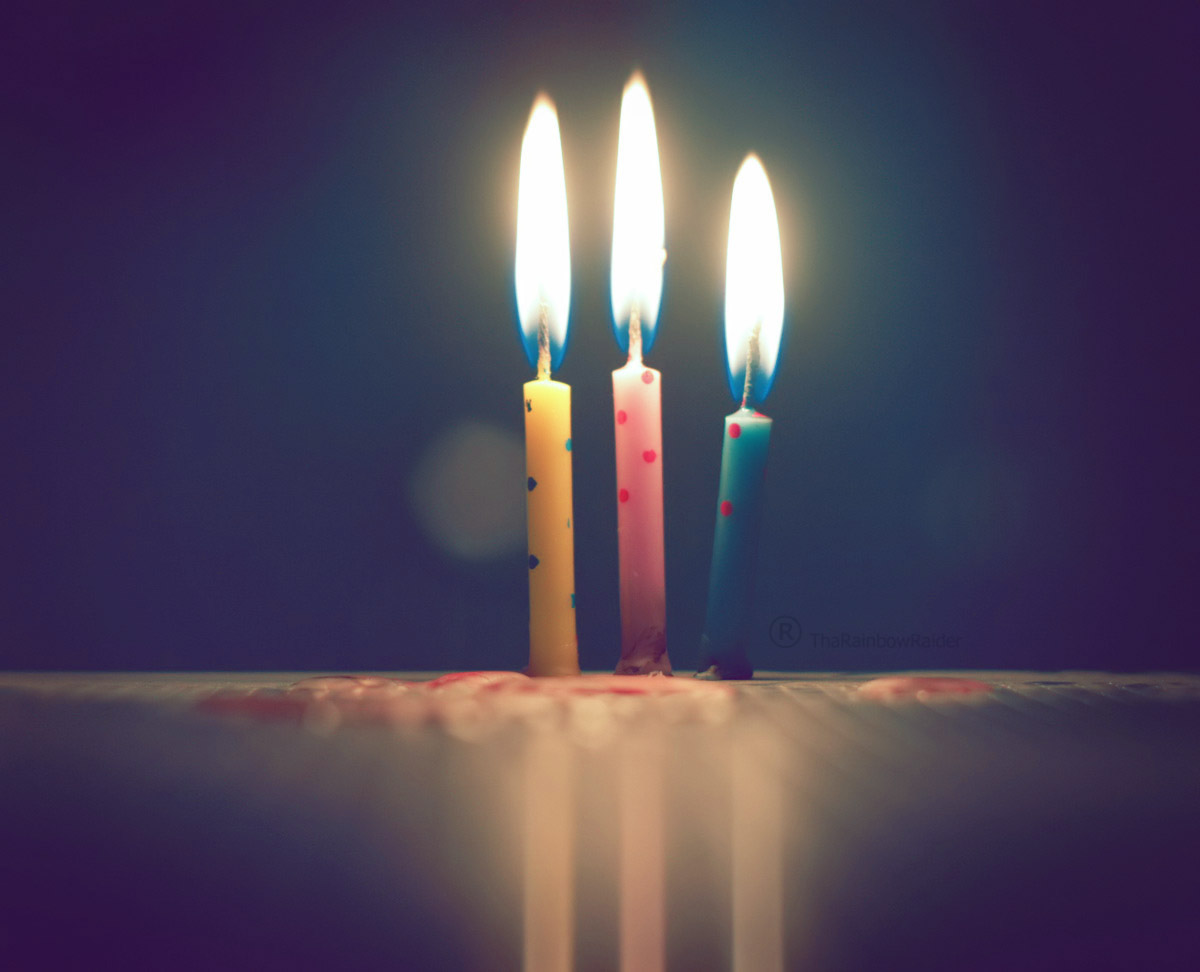 |
| Photo credit: Aih. on Flickr |
Three years! Wow. It’s hard to believe it’s been so long since I first started this blog. Writability’s had some pretty awesome milestones along the way and I’ve had so much fun running this blog. And will continue to do so. :)
In honor of Writability’s third birthday, there are going to be some fun things this week! Happy fun things. And I can’t wait to share them with you guys, and that’s all I’m going to say about that.
Well, maybe one more hint: tomorrow is Writability’s actual birthday. I don’t usually post on Tuesdays but you maaaaayyy want to stop by. Just saying.
As for today, I’m kicking off Writability’s birthday week with a giveaway! A bunch of giveaways, actually, because some very lovely ladies oh so graciously agreed to participate. Yay!
Up for grabs this week is a reader report on a full manuscript, a first 50 page critique, a query + 25 page critique, a query + first three chapters critique, a query + synopsis + 1st chapter submission package critique AND a query + Twitter pitch critique package!
That’s right—SIX prizes! All full of critiquerly goodness!
And here are our awesome donors!
 Rae Chang
Rae Chang
Rae Chang is the assistant to Brenda Drake (the reigning queen of online pitch contests) as well as an editor and YA/NA writer. When not writing and editing, you can find her lightsaber dueling her husband, creating culinary masterpieces in the kitchen, composing the soundtracks to her novels, speaking at high schools as a youth mentor, and being a kick-butt outreach coordinator at a women's shelter.
Follower her on Twitter!
Read her blog!
Rae is giving away
3 passes on a query and up to 5 Twitter pitch critique package!
Restrictions:
No PB, Comedy, Erotica, Political books, category Romance or Westerns. If MG, only upper MG.
a Rafflecopter giveaway
 Vicki Leigh
Vicki Leigh
Vicki is an editor for Curiosity Quills Press, a co-founder of The Writer Diaries, and is represented by Sarah Negovetich of Corvisiero Literary Agency. If she couldn’t be a writer, Vicki would be a Hunter (think Dean and Sam Winchester) or a Jedi. Her favorite place on earth is Hogwarts (she refuses to believe it doesn’t exist), and her favorite dreams include solving cases alongside Sherlock Holmes. Her YA debut, CATCH ME WHEN I FALL, releases October 23, 2014.
Google+:
www.google.com/+vickileighwrites
Vicki is giving away a
query, synopsis AND first chapter submission package critique!
a Rafflecopter giveaway
 Naomi Hughes
Naomi Hughes
Naomi is a freelance editor and an agented writer of quirky middle-grade/young adult novels (most of which involve unicorns). She lives in Oklahoma with her husband, daughter, and a hyperactive Border Collie named after a Last Airbender character. You can find out more about her at
www.naomiedits.com and
follow her on Twitter.
Naomi is giving away a
query plus first 25 page critique package!
Restrictions:
NO horror or erotica.
a Rafflecopter giveaway
Alice

Alice is the psudonym of a girl who writes weird fiction for smart
people. She grew up in London, in a flat that overlooks a park. She speaks a few languages, and studied linguistic philosophy at uni. She was once stranded on a train to Victoria without paper and wrote a short story on her ticket.
She's represented by Rubin Pfeffer Content, and will be in Austin, Texas until autumn--after which she, her Boy Thing, three cats, some antique guitars and typewriters, and enough books to bury them all in will make their way back to Europe.
Alice is giving away a first 50 page critique!
Restrictions:
Adult fiction or YA/NA speculative preferred.
a Rafflecopter giveaway
 Cait Spivey
Cait Spivey
Cait Spivey is an author and freelance editor, on staff for Curiosity Quills Press and REUTS Publications, as well as a managing member of
Bear and Black Dog Editing, LLC. As an editor, Cait pulls from her lifelong experience loving books to bring forth the best elements of every story in a way that grabs the reader and doesn’t let go. She wants to help books tug heartstrings. She wants to help books become heirlooms. She wants to help books get quoted on Tumblr.
Follow her on Twitter @CaitSpivey.
Cait is graciously giving away TWO prizes: a query plus first three chapters critique package AND a reader report on a full!
Restrictions:
Spec fic and His fic ONLY. NO Contemporary.
a Rafflecopter giveaway
Go forth and enter! And good luck!
Twitter-sized bite:
Come celebrate Writability's 3rd birthday by entering to win six fabulous critiquerly prizes! (Click to tweet)















